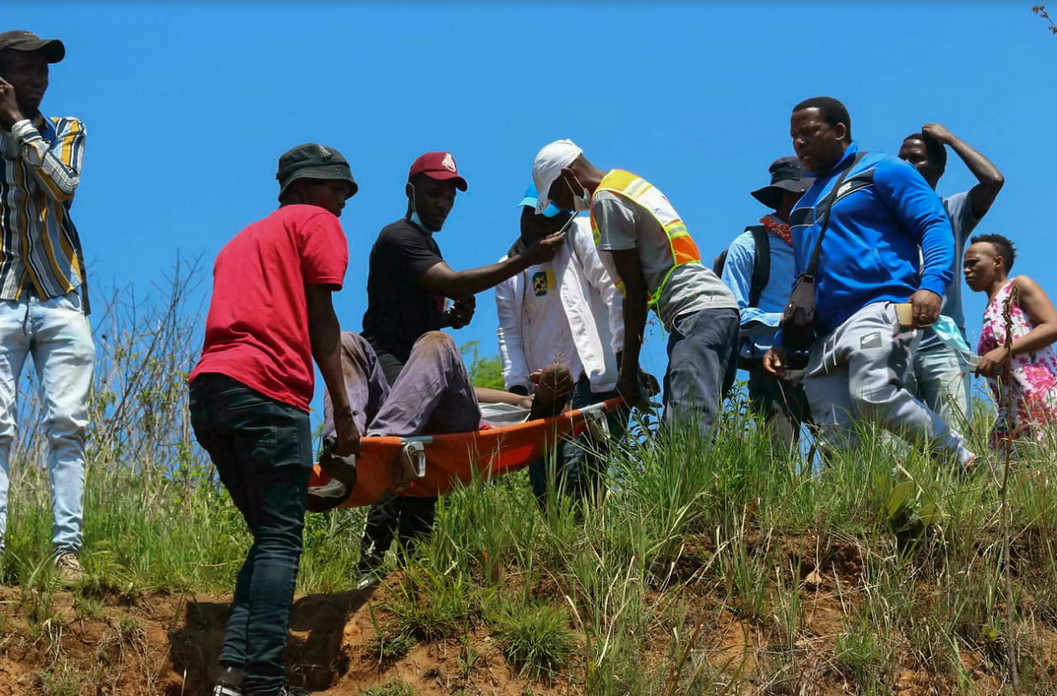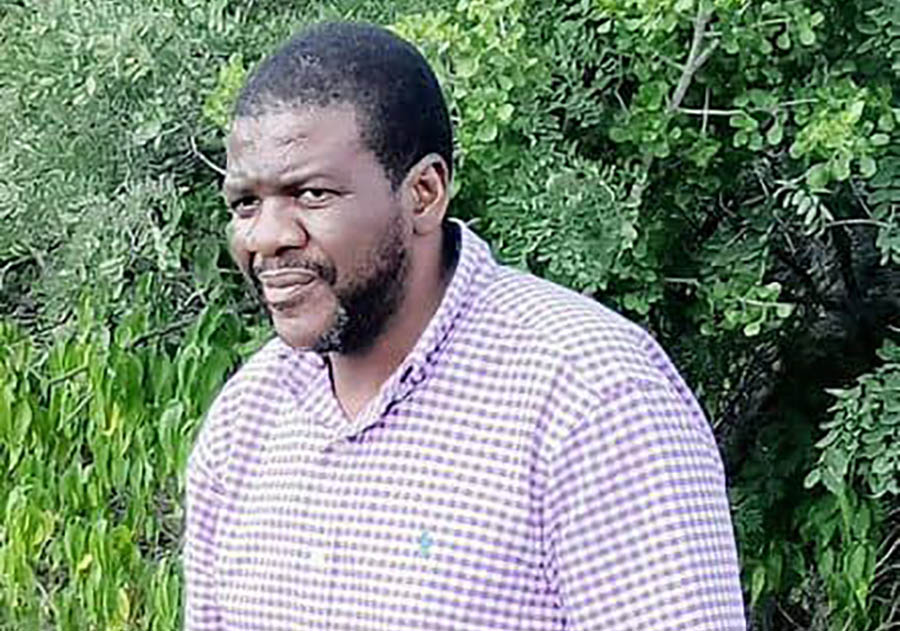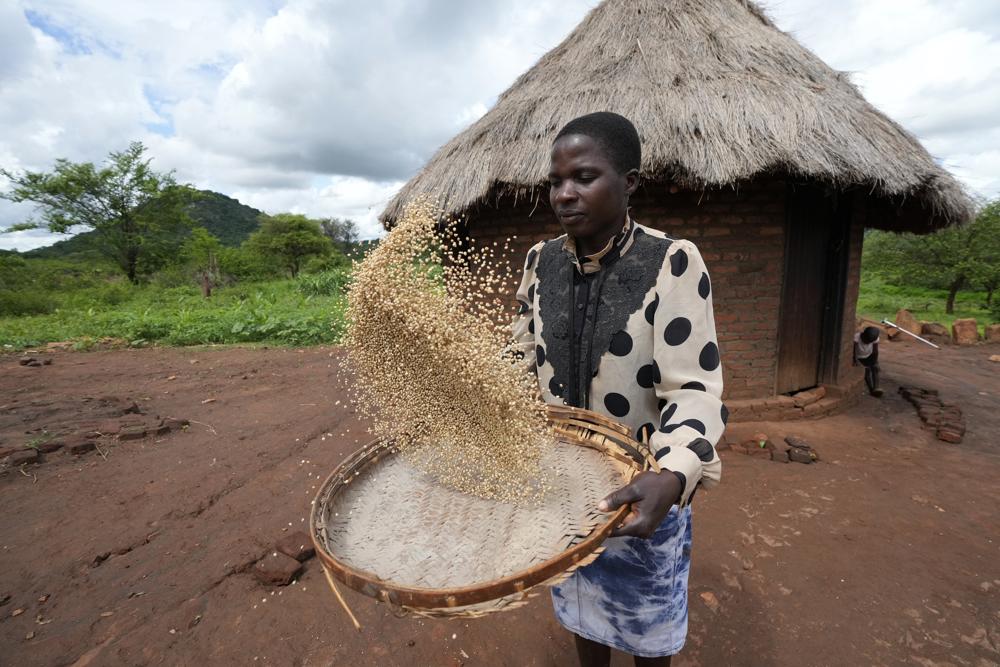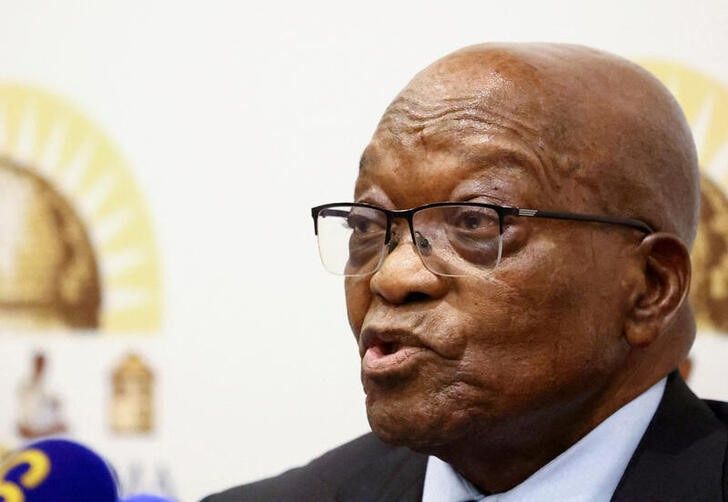MBABANE, Swaziland – SADC said on Saturday that Eswatini’s King Mswati III – Africa’s last absolute monarch – had accepted the need for a national dialogue after pro-democracy protests intensified this month, but his critics said he was playing for time.
Envoys from South Africa, Namibia, Botswana and the regional group visited Eswatini on Thursday and Friday and met the king, the prime minister, civil society organisations, trade unions and others, SADC said in a statement.
“King Mswati III has accepted the need for national dialogue… I appeal for calm, restraint, the respect for the rule of law and human rights on all sides to enable the process to commence,” South African President Cyril Ramaphosa said in a statement in his capacity as chair of the SADC’s politics organ.
The monarch plans to convene a meeting where people can express their grievances, a representative of the king told the state broadcaster.
Themba Ginindza, a senior aide of the king, said Mswati III “has announced that a process of national dialogue… will be initiated” after an annual ritual ceremony that starts in November and usually lasts several months.
During the ceremony known as Incwala, the king goes into seclusion and does not engage in official government activities.
Ginindza said the king wanted calm, and “an end to all violence as no dialogue can happen while tempers are this high”.
Opposition and pro-democracy groups rubbished his call “as a ploy to mislead” mediators.
“We have long lost hope in such forums, and therefore we shall not attend the meeting,” they vowed in a statement.
“We will not allow the king who has blood on his hands to call the shots of how and where the dialogue will be held. There can be no calm or peaceful dialogue as long as the security forces continue to kill and maim the people.”
Police said 37 people had died since the violent anti-monarchy protests first flared in June, fuelled by discontent over living conditions and lack of political freedom in the tiny southern African kingdom.
A police report on protests by civil servants last Wednesday said security forces had shot one demonstrator with a rubber bullet, but that police had no record of any fatalities during the unrest. Local civic group Leftu Sonkhe Institute of Strategic Thinking and Development suggests the unrest has so far claimed around 80 lives.
“His majesty has sent us to pass our sincere condolences to all who have lost loved ones during the unrest,” said Ginindza.
Last Thursday, the government banned all protests. The government also ordered mobile network operators to suspend access to Facebook and its messenger app, the local unit of telecoms company MTN Group said.
Anger against 53-year-old Mswati III has been building for years.
Campaigners say he has consistently ignored calls for reforms that would move Eswatini, known as Swaziland until 2018, towards democracy.
The king denies accusations of autocratic rule and of using public money to fund a lavish lifestyle in the impoverished nation that borders South Africa. In July, he called protests against his rule “satanic”.
Recent protests have included demonstrations in schools by students, bus drivers blocking roads and marches by unions.
King Mswati III enjoys flaunting his wealth and showering his 15 wives with lavish gifts.
Yet he rules over one of the poorest countries in the world, where nearly two-thirds of the population lives in poverty.
He earlier last week said he was not prepared to negotiate with “drunkards”, in an apparent reference to pro-democracy activists. – Reuters/AFP
















